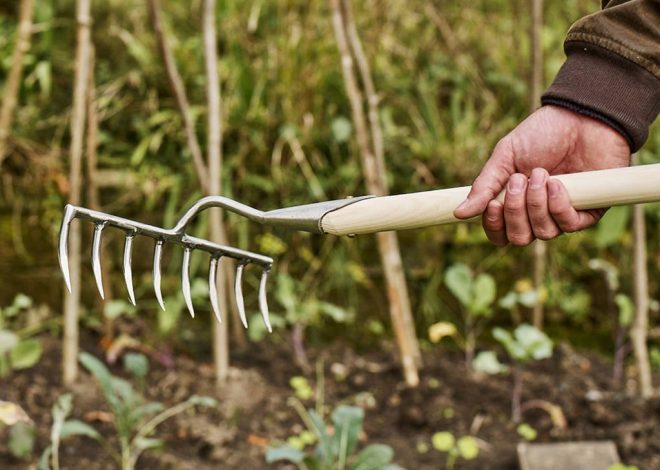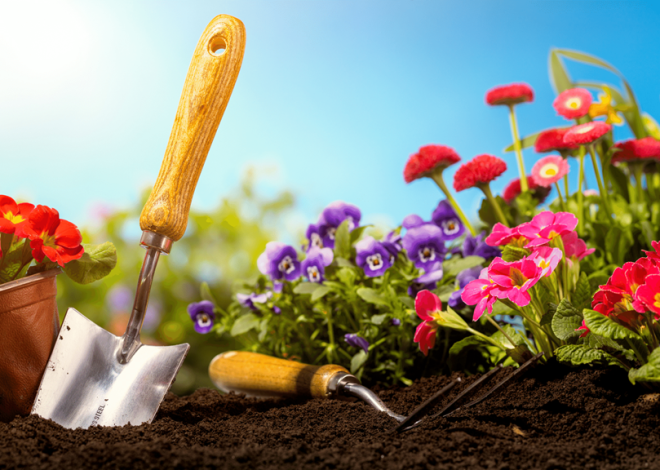
What is the Most Important Tool Every Gardener Should Have?
When it comes to gardening, there’s a certain magic in watching a tiny seed transform into a thriving plant. Whether you’re a seasoned horticulturist or just getting your hands dirty for the first time, one thing remains constant: the need for the right tools. Gardening isn’t just a hobby; it’s a labor of love that demands patience, dedication and a connection with nature. In this article, we’ll explore the most important tool that every gardener should have in their arsenal. Let’s dive in and unearth the secret to successful gardening.
The Gardener’s Best Friend: Soil
Before we jump into the nitty-gritty of gardening tools, let’s address the unsung hero of every garden – soil. Good soil is the foundation upon which your gardening dreams are built. It’s the very essence of life for your plants. Think of it as your garden’s kitchen, supplying all the nutrients your plants need to thrive.
You might be wondering why soil is considered a tool. Well, think of it this way: a chef’s best tool is their kitchen. Similarly, a gardener’s best tool is their soil. Without the right soil, no amount of fancy equipment can make your garden flourish.
Understanding the Basics of Soil
To truly appreciate the significance of soil, let’s break down its components and how they contribute to your garden’s success:
Texture Matters: Soil comes in various textures, primarily sandy, loamy, and clayey. The ideal soil for most plants is loamy, as it provides a balanced mix of sand, silt, and clay.
Nutrient Content: Healthy soil is rich in essential nutrients like nitrogen, phosphorus, and potassium. These nutrients are vital for plant growth and development.
pH Levels: Soil pH measures its acidity or alkalinity. Most plants prefer slightly acidic to neutral soil. Testing and adjusting pH can make a significant difference in plant health.
Organic Matter: Organic matter, such as compost and mulch, enriches the soil by improving its structure and water retention capabilities.
Drainage: Proper drainage is crucial to prevent waterlogging, which can harm plant roots. Well-draining soil ensures that your plants get the right amount of water.
Tools for Soil Management
Now that we’ve established the importance of soil let’s discuss the tools that every gardener should have for proper soil management:
Shovel: A sturdy shovel is essential for digging and turning soil, especially when you’re preparing a new garden bed.
Garden Fork: A garden fork helps break up compacted soil, improving aeration and drainage.
Soil Test Kit: To understand your soil’s pH and nutrient levels, a soil test kit is indispensable. It guides you in making necessary amendments.
Compost Bin: Recycling kitchen waste into nutrient-rich compost is an eco-friendly way to enhance your soil.
Mulch: Mulching your garden beds helps conserve moisture, regulate soil temperature, and suppress weeds.
Trowel: A hand trowel is perfect for planting small seedlings and bulbs.
Gloves: Protect your hands with sturdy gardening gloves while working with soil and plants.
The Multi-Purpose Gardening Tool: The Gardening Knife
While soil is undoubtedly the cornerstone of successful gardening, there’s one tool that stands out as a versatile and invaluable companion for every gardener: the gardening knife.
Why the Gardening Knife?
Imagine a Swiss Army knife designed exclusively for gardening. That’s precisely what a gardening knife is. It’s a compact, multifunctional tool that no gardener should be without. Let’s explore some of its many uses:
Weeding: With a sharp blade, you can easily cut through weeds at the root, preventing them from regrowing.
Pruning: Trimming dead or overgrown branches is a breeze with a gardening knife. It’s particularly useful for delicate, precision pruning.
Harvesting: Whether you’re picking fruits, vegetables, or herbs, a gardening knife’s sharp edge ensures a clean cut, reducing damage to the plant.
Digging: Need to dig a small hole for transplanting or planting seeds? Your gardening knife can handle it.
Cutting Twine: Tying up plants or trellising? No problem – your trusty knife can cut twine with ease.
Opening Bags of Soil or Fertilizer: Don’t struggle with scissors or your hands; a gardening knife can open bags effortlessly.
Dividing Plants: When it’s time to divide and propagate your plants, the knife provides a clean and precise cut.
The gardening knife is like an extension of your hand, a companion that adapts to various gardening tasks. It simplifies your work, making you more efficient and reducing the need for multiple specialized tools.
Conclusion
In the world of gardening, success begins with the soil. It’s the nurturing ground where your gardening dreams take root and flourish. Understanding the importance of soil and having the right tools for soil management is essential.
However, among the various gardening tools, the gardening knife stands out as the unsung hero. Its versatility makes it an indispensable tool for every gardener, whether you’re a beginner or a seasoned pro.
So, the next time you step into your garden, armed with your gardening knife, remember that you’re holding the key to a thriving and bountiful garden. With the right soil and the right tools, you’re well on your way to becoming a master gardener.
Frequently Asked Questions
Do I need to invest in expensive gardening tools?
Not necessarily. While quality tools can make your gardening experience more enjoyable, you can start with basic, affordable options and gradually expand your collection.
Can I use regular kitchen knives for gardening tasks?
It’s not recommended. Garden knives are designed for outdoor use and are more robust and durable than kitchen knives. Using the right tool ensures safety and efficiency.
How often should I test my soil?
It’s a good practice to test your soil at least once a year, preferably in the spring, before planting. However, if you encounter specific issues, such as poor plant growth or yellowing leaves, test your soil immediately to identify and address the problem.
Is it necessary to wear gloves while gardening?
Wearing gloves is advisable to protect your hands from thorns, sharp tools, and soil-borne pathogens. It also helps maintain good hand hygiene.
Can I use any soil for container gardening?
While you can use various types of potting mixes for container gardening, it’s essential to choose one specifically formulated for the types of plants you intend to grow. Different plants have different soil requirements.




